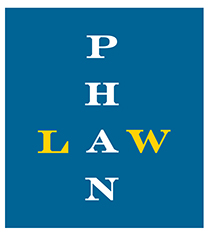The Ends Do Not Justify the Means
A Closer Look at the Texas Board of Nursing’s Disciplinary Pursuits Against Nurses Couched Under the Auspices of Protecting and Promoting the Welfare of the People of Texas
The Phan Law Firm, P.C., handles disciplinary cases dealing with a wide range of professional licensees. Naturally, the firm tends to do a significant number of cases involving vocational and professional nurses with the Texas Board of Nursing (“BON”) given that I was the former Assistant General Counsel at the Texas Board of Nursing.
If you’ve been reading about or following the Texas Board of Nursing, there is an increasing number of disciplinary cases going to a contested case hearing before a judge (administrative law judge or ALJ) at the State Office of Administrative Hearings (SOAH). This is directly related to the increase in the enforcement and legal staff at the Board which continues to receive funding from the State Legislature in a time when state resources are limited. Given the resources available for the Texas Board of Nursing, the Board has the ability to pursue more aggressive positions. The effect of this pursuit may push nurses into settlement knowing that the Board of Nursing has the luxury of resources that they do not.
In this atmosphere, the Board of Nursing is inclined to pursue a contested case hearing. Such strategy by the Board of Nursing, as reflected in some of the decisions written by the ALJs at SOAH, however, has not resulted in successful results for the Board of Nursing. Nevertheless, this mindset of the Board of Nursing continues to raise alarms for all nurses practicing in the state of Texas especially those that are the subject of a complaint.
The firm has seen, time and time again, how the Board of Nursing enforcement and legal staff can take unreasonable positions based on undeveloped cases or their insistence on application of the statutes and rules against nurses that, in our opinion, are improper relative to the facts of the case, forcing a contested case hearing at SOAH.
A review of recent SOAH cases involving the Board of Nursing shows that the Board of Nursing, in its efforts to continue to push the envelope in the interest of protecting public safety, continues to misapply and misconstrue its statutes and rules. From our perspective, it appears the Board of Nursing is pursuing discipline while forsaken a “common sense” approach. In its relentless pursuit, the Board of Nursing continues to stretch its rules to apply to settings that one would not believe were applicable. These positions, however, are beginning to be received with more guardedness by the SOAH ALJs. In some instances, the Board of Nursing’s positions are being rejected by the SOAH ALJs altogether.
In a case that illustrates the unrestrained approach taken by the Board of Nursing, it attempted to impose disciplinary action on a nurse who was approached by a stranger in the hospital parking lot as the nurse was leaving a vehicle on the way to begin a shift. Unbeknownst to the nurse, the stranger was a process server. However, the nurse, feeling frightened and believing that the stranger was going to impose harm upon the nurse, took out a firearm for self-protection. The Board of Nursing initiated a complaint in this matter against the nurse. It argued that this conduct by the nurse was unprofessional because the nurse’s action “caused or permitted physical, emotional or verbal abuse or injury to the client or the public.” In essence, the Board of Nursing argued that a nurse was acting in the “role as a nurse” and that the “workplace” extended beyond the “place where work is done.” Here, a hospital parking lot. This position should send chills down the spine of each licensed nurse in Texas. If this position had been advanced successfully, a nurse may always be acting in conformance to the Board of Nursing’s rules even when they were not physically at the workplace.
Although the ALJ exercised a common-sense approach and dismissed the case against the nurse, this proves that the Board of Nursing takes fairly aggressive action and positions in protecting public safety, even if it means ignoring the facts of the case and common sense.
The firm has represented nurses where the occurrence of alleged misconduct, similar to the case above, occurred in a setting much further removed from our clients’ physical workplaces and even more tenuous than just arriving to work. This is illustrated in a case the firm handled involving a nurse on the way to work wearing scrubs and being pulled over for speeding by law enforcement. In this situation, because the client disputed the officer’s account of speeding and had the gumption to let the officer know how the nurse felt about receiving a citation, the officer filed a complaint against our client which was then pursued by the Board of Nursing under similar grounds. The Board alleged that the nurse’s interaction with the law enforcement officer was unprofessional conduct and that the nurse, wearing scrubs, was acting in the “role of a nurse.”
These types of cases signal to us that the Board of Nursing continues to pursue aggressive positions based on the belief that a nurse is always a nurse and always acting in “the role of a nurse.” This means that even if he or she is involved in conduct physically removed from the workplace setting. If you are a nurse, think about this premise as grounds for a complaint the next time you are in a casual disagreement with someone at a restaurant, at the store, or at your home.










